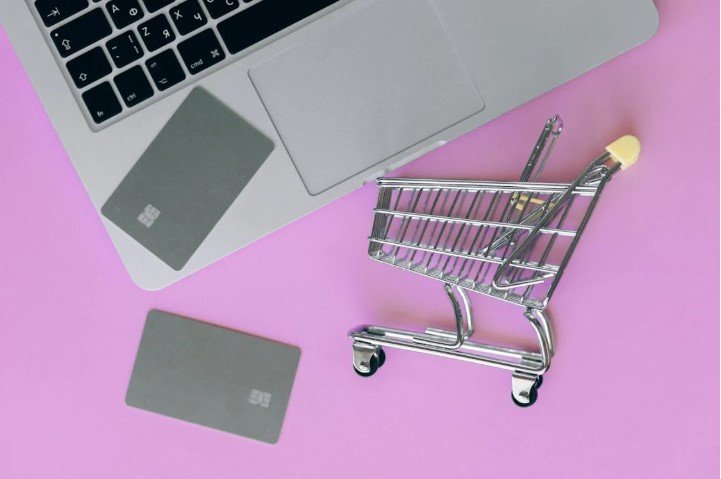Best E-commerce Payment Gateways for Online Stores in 2024 Top Payment Solutions
In the fast-paced world of e-commerce, providing a seamless and secure payment process is vital for the success of an online store. Customers expect a smooth, quick, and trustworthy payment experience, and choosing the right payment gateway plays a significant role in achieving this. An e-commerce payment gateway is a technology that allows businesses to process online transactions securely, from credit card payments to digital wallets. With a variety of options available, it can be challenging for online merchants to choose the best one. This article highlights some of the best e-commerce payment gateways for online stores, taking into account security, ease of use, fees, and features.
PayPal
Overview:
PayPal is one of the most widely recognized and trusted payment gateways globally, offering a simple and secure solution for businesses of all sizes. It allows customers to make payments via credit/debit cards or directly from their PayPal account.
Key Features:
- Supports a wide range of payment methods (credit cards, debit cards, PayPal balance, etc.).
- Easy to integrate with most e-commerce platforms like Shopify, WooCommerce, and BigCommerce.
- Includes fraud protection tools and secure encryption for transactions.
- Available in over 200 countries with multi-currency support.
- Mobile-friendly interface for on-the-go payments.
Best For:
Small to large businesses looking for an easy-to-use, widely accepted, and secure payment system. It is particularly good for international sales due to its multi-currency support.
Cons:
PayPal’s fees can be higher compared to some other gateways, especially for international transactions or small payments.
Stripe
Overview:
Stripe is a popular payment gateway that caters to both developers and businesses. Known for its flexible, API-driven integration, Stripe offers extensive tools for handling payments on websites and mobile apps. It supports multiple payment methods, including credit cards, debit cards, Apple Pay, Google Pay, and even Bitcoin.
Key Features:
- Seamless integration with a variety of e-commerce platforms, including Shopify, WooCommerce, and Magento.
- Advanced features for handling recurring payments, subscriptions, and invoices.
- Secure and reliable with built-in fraud protection.
- Provides access to detailed analytics and reports.
- Customizable checkout experience for a personalized customer journey.
Best For:
Businesses that need more customization and control over their payment processing. Ideal for tech-savvy entrepreneurs or developers building custom solutions.
Cons:
Stripe may require some technical expertise for setup and customization. It is not as beginner-friendly as some alternatives.
Square
Overview:
Square is a versatile payment gateway that provides solutions for both online and offline businesses. Known for its user-friendly interface, Square offers an easy setup and a range of additional tools to support inventory management, customer analytics, and more.
Key Features:
- Flat-rate pricing structure, making it easy to understand and predict costs.
- Comprehensive suite of tools for business management, including POS systems, inventory tracking, and invoicing.
- Integrates seamlessly with a variety of platforms and shopping carts.
- No monthly fees or setup costs for online businesses.
- Secure payment processing with encryption and fraud prevention measures.
Best For:
Small to medium-sized businesses looking for a straightforward, all-in-one solution with no monthly fees. It’s perfect for businesses that have both online and brick-and-mortar stores.
Cons:
Square’s international availability is more limited compared to other payment gateways like PayPal or Stripe.
Authorize.Net
Overview:
Authorize.Net is one of the oldest and most reputable payment gateways in the market. It provides a variety of features that suit both small businesses and large enterprises, offering seamless integrations with popular e-commerce platforms.
Key Features:
- Supports a variety of payment methods, including credit cards, e-checks, and digital wallets like Apple Pay.
- Recurring billing capabilities, making it ideal for subscription-based services.
- Detailed reporting and analytics tools.
- Advanced fraud detection and security features to protect against chargebacks.
- 24/7 customer support and a dedicated account manager for larger merchants.
Best For:
Businesses that need reliable and secure payment processing with access to advanced features. It’s particularly well-suited for subscription-based businesses or those handling large volumes of transactions.
Cons:
Authorize.Net can have higher transaction fees compared to other payment gateways. Setup may also be more complex for those without technical expertise.
Shopify Payments
Overview:
For Shopify store owners, Shopify Payments is an ideal choice as it’s fully integrated into the platform. Shopify Payments simplifies the payment process, eliminating the need for third-party payment gateways. It supports a wide variety of payment options, including credit cards, debit cards, and Apple Pay.
Key Features:
- Direct integration with Shopify, making it easy to set up and manage.
- Competitive transaction fees, especially when using Shopify Payments instead of a third-party gateway.
- Supports a variety of payment methods, including local and international credit cards.
- No additional monthly fees when using Shopify Payments (unless you choose a third-party gateway).
- Excellent customer support and resources.
Best For:
Shopify store owners looking for an easy and integrated solution. Ideal for merchants who are already using Shopify as their e-commerce platform.
Cons:
Shopify Payments is only available to Shopify merchants, and using third-party gateways comes with additional fees.
Braintree
Overview:
Braintree, a service owned by PayPal, is a flexible payment gateway that offers a wide range of payment methods, including credit and debit cards, PayPal, Venmo, Apple Pay, and Google Pay. It’s designed for businesses that need to scale quickly and integrate with mobile apps and websites.
Key Features:
- Supports multiple payment options, including local payment methods.
- Easy-to-use API for developers to integrate and customize the payment experience.
- Built-in fraud protection and secure payment processing.
- Recurring billing and subscription management.
- Global reach with support for over 130 currencies.
Best For:
Growing businesses that want a flexible payment solution with multi-currency support. Particularly useful for mobile-first businesses or those needing easy integration with mobile apps.
Cons:
Braintree is better suited for businesses with development resources due to its reliance on APIs for customization.
2Checkout (now Verifone)
Overview:
2Checkout, now rebranded as Verifone, is a global payment platform offering a variety of features that support e-commerce businesses worldwide. It is an excellent option for businesses looking to expand internationally, offering support for over 45 payment methods and 87 currencies.
Key Features:
- Global payment acceptance with support for multiple currencies and payment options.
- Recurring billing and subscription management.
- Fraud protection tools and secure encryption for safe transactions.
- Simple integration with popular e-commerce platforms.
- Customizable checkout page to match your branding.
Best For:
Businesses looking to expand internationally and needing a robust payment solution with global capabilities.
Cons:
Transaction fees may be higher than some other gateways, especially for international payments.
Choosing the right payment gateway for your online store depends on several factors, including your business size, target audience, and technical expertise. For businesses looking for a simple, trusted option, PayPal and Square are excellent choices. Developers and tech-savvy entrepreneurs may prefer Stripe or Braintree for their flexibility and customization options. Shopify store owners will find Shopify Payments to be the most seamless solution, while larger businesses requiring advanced features may consider Authorize.Net or 2Checkout.
Ultimately, the best payment gateway will be the one that fits your business model, provides security and reliability, and offers an intuitive experience for both you and your customers.
Frequently Asked Questions (FAQs) About Best E-commerce Payment Gateways for Online Stores
1. What is an e-commerce payment gateway?
An e-commerce payment gateway is a technology that facilitates online payments by securely transmitting transaction information between the customer, the merchant, and the payment processor. It encrypts sensitive data (like credit card details) to ensure the security of online transactions. Payment gateways allow customers to pay via various methods such as credit/debit cards, digital wallets, and bank transfers.
2. What are the fees associated with using a payment gateway?
Payment gateway fees vary depending on the provider and the type of transaction. Typically, fees can include:
- Transaction fees: A percentage of the transaction amount (usually between 1.5% and 3.5%).
- Setup fees: Some gateways charge a one-time setup fee.
- Monthly fees: Some gateways charge a monthly service fee, though many, like PayPal and Square, do not.
- Chargeback fees: Fees applied if a customer disputes a transaction. It’s essential to understand the fee structure before committing to a gateway to ensure it fits your business model.
3. How do I choose the best payment gateway for my online store?
When choosing a payment gateway, consider factors such as:
- Transaction fees: Evaluate how much the gateway charges for each transaction.
- Payment methods supported: Ensure the gateway supports the payment methods most used by your target audience (credit cards, digital wallets, etc.).
- Security features: Look for gateways with strong security protocols like SSL encryption and fraud prevention tools.
- Ease of integration: Choose a payment gateway that integrates easily with your e-commerce platform (e.g., Shopify, WooCommerce).
- Global support: If you sell internationally, select a gateway with multi-currency and global payment options.
4. Are payment gateways safe to use?
Yes, most reputable payment gateways are very safe. They use encryption technologies such as SSL (Secure Socket Layer) and tokenization to protect sensitive customer data during transactions. They also comply with Payment Card Industry Data Security Standards (PCI DSS), which ensures that they meet stringent security requirements. However, it’s important to choose a reliable payment gateway provider with a good track record for security.
5. Can I use multiple payment gateways on my online store?
Yes, many online stores integrate multiple payment gateways to provide customers with more payment options. This can help cater to different preferences (e.g., credit cards, PayPal, or digital wallets). However, managing multiple gateways can be more complex, and you may incur additional fees or integration challenges. It’s important to assess whether the benefits of offering multiple payment options outweigh the operational complexities.












Post Comment